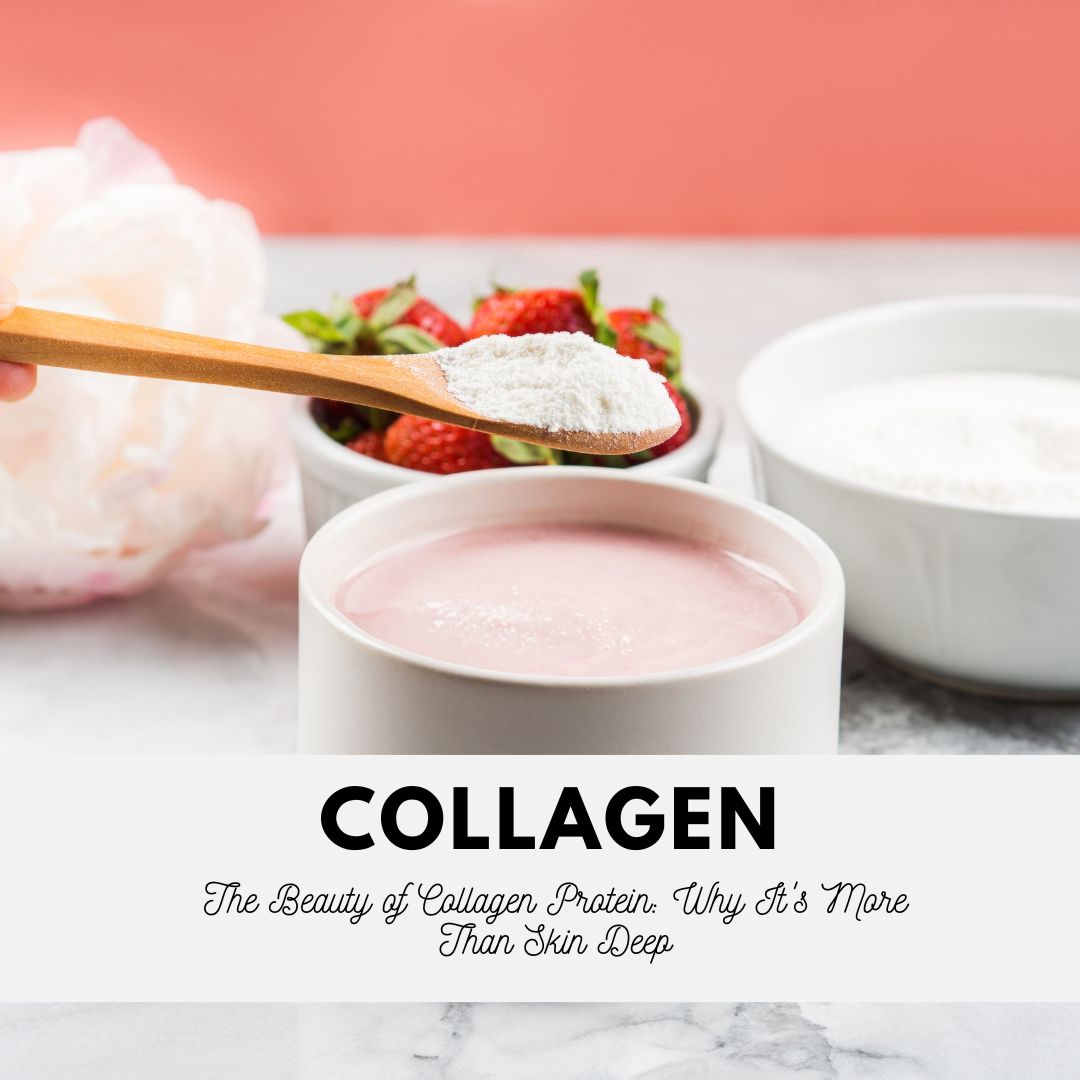
When it comes to protein, most people think about muscle building and recovery, but there’s another essential player in the protein game that often goes unnoticed: collagen protein. Collagen is the most abundant protein in the human body, and it plays a crucial role in not only maintaining the health and integrity of our skin, but also our joints, bones, and more. In this blog post, we’ll dive into the world of collagen protein and explore why it’s important for your overall well-being.
What Is Collagen?
Collagen is a structural protein that acts as the building blocks of various tissues in your body, including your skin, hair, nails, bones, tendons, ligaments, and even your digestive tract. It provides strength and elasticity to these tissues, keeping them resilient and functional.
Why Is Collagen Important?
- Skin Health:
Collagen is often associated with youthful and glowing skin. As we age, our bodies produce less collagen, leading to wrinkles, sagging skin, and fine lines. By including collagen in your diet or taking collagen supplements, you can help maintain your skin’s elasticity and hydration, ultimately reducing the signs of aging.
- Joint Health:
Collagen is a major component of cartilage, the tissue that cushions and protects your joints. As collagen levels decline with age, joint pain and stiffness can become more common. Supplementing with collagen may support joint health and alleviate discomfort.
- Bone Health:
Collagen also contributes to the structure and strength of bones. As you age, bone density can decrease, leading to conditions like osteoporosis. Some studies suggest that collagen supplements may help improve bone density and reduce the risk of fractures.
- Gut Health:
The lining of your digestive tract is made up of a type of collagen called collagen Type IV. Consuming collagen may help support the integrity of your gut lining and promote a healthy digestive system.
- Hair and Nail Strength:
Collagen supports the growth and strength of your hair and nails. If you have brittle nails or hair that lacks lustre, collagen supplementation might help improve your appearance and health.
How to Incorporate Collagen:
- Dietary Sources:
Collagen can be obtained from natural food sources like bone broth, chicken skin, fish skin, and pork skin. These sources contain collagen-rich connective tissues that can be simmered into broths or used in various recipes.
- Collagen Supplements:
Collagen supplements are available in various forms, including powders, capsules, and liquids. Collagen peptides, which are easily digestible and absorbable, are a popular choice. You can mix collagen powder into your favorite beverages or add it to recipes.
- Collagen-Boosting Foods:
Certain foods can support collagen production in your body. These include vitamin C-rich fruits and vegetables, antioxidants like berries, and foods containing amino acids like proline and glycine, such as bone broth and lean meats.
Collagen protein is much more than just a beauty supplement. It’s a fundamental protein that supports your skin, joints, bones, and gut health. As we age, our natural collagen production decreases, making it essential to incorporate collagen-rich foods or supplements into our diet. Whether you’re looking to maintain youthful skin, support your joints, or enhance your overall well-being, collagen protein is a valuable addition to consider for a healthier and more vibrant you.
Leave a Comment
You must be logged in to post a comment.
0 Comments